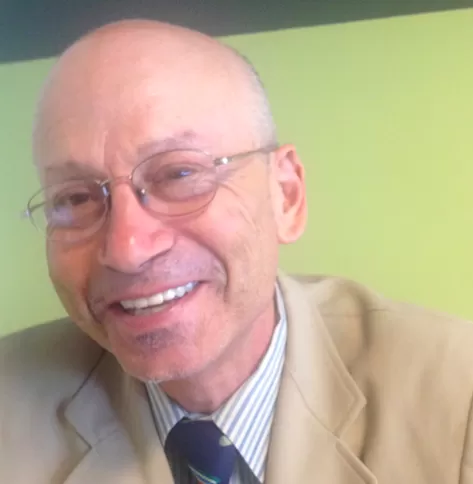Irvin Dawid discovered Planetizen when a classmate in an urban planning lab at San Jose State University shared it with him in 2003. When he left San Jose State that year, he took with him an interest in Planetizen, if not the master's degree in urban & regional planning.
As a long-time environmental activist, he formed the Sustainable Land Use committee for his local Sierra Club chapter and served six years on the Bay Area Air Quality Management District’s Advisory Council from 2002-2008. He maintains his interest in air quality by representing Sierra Club California on the Clean Air Dialogue, a working group of the Calif. Environmental Dialog representing business, regulatory and public health/environmental interests.
Major interests include transportation funding, e.g., gas taxes, vehicle miles traveled (VMT) fees, road tolls and energy subsidies that lead to unlevel playing fields for more sustainable choices.
He hails from Queens (Bayside) and Long Island (Great Neck); received an AAS in Fisheries & Wildlife Technology from SUNY Cobleskill and a B.S. from what is now Excelsior College.
After residing for three years on California’s North Coast, he’s lived on the San Francisco Peninsula since 1983, including 24 years in Palo Alto. Home is now near downtown Burlingame, a short bike-ride to the Caltrain station.
He’s been car-free since driving his 1972 Dodge Tradesman maxi-van, his means to exit Long Island in 1979, to the junkyard in 1988.
Major forms of transportation: A 1991 'citybike' and monthly Caltrain pass, zone 2-2. "It's no LIRR, but it may be the most bike friendly train in America."
Irvin can be reached at [email protected]
Is It OK Now to Have More Babies?
For those concerned about world population, a new study from Spain rebuts prior studies, including the U.N. 2011 report that project population reaching 10 billion by 2100. The new report projects it peaking at 8 billion in 2050, then declining.
The Paradox of the EPA's Clean Fuel Rules
The EPA's newly proposed rules to reduce sulfur in gasoline may have the perverse effect of making alternative vehicles, that is, those that don't run on gasoline, less competitive with conventional vehicles and ensure that we remain addicted to oil.
Arkansas Oil Pipeline Spill: A Warm-Up for Keystone XL?
The NewsHour's Judy Woodruff asks pointed questions to Anthony Swift, of the Natural Resources Defense Council, and Andy Black, president of the Association of Oil Pipe Lines, about the latest spill involving oil sands crude. The two agree on little.

Why Americans Are Moving from Blue to Red States
In this op-ed, Arthur B. Laffer and Stephen Moore analyze the recent Census findings showing renewed migration from the Northeast and Midwest to the South and Southwest. They note the movement is clearly from blue states to red, and explain why.
Is Indexing the Key to Fixing the Federal Gas Tax?
It's not too early to think about "fixing the Highway Trust Fund", a prerequisite to renewing MAP-21 transportation legislation that expires Sept. 30, 2014. Rep. Peter DeFazio may have the fix in the form of an indexed gas tax - but which index?

























